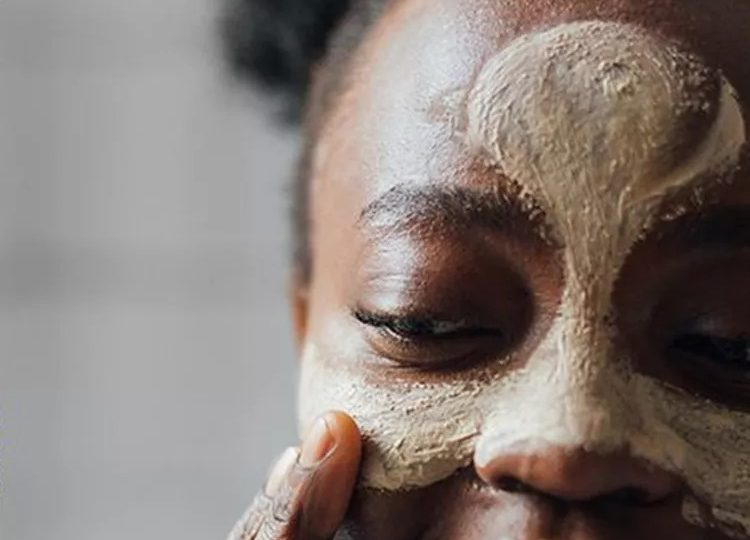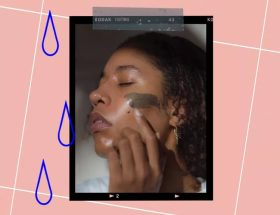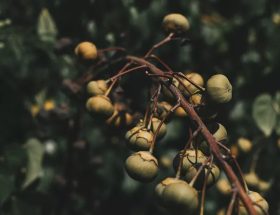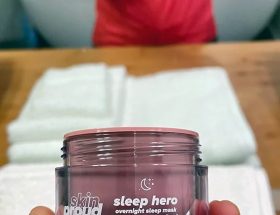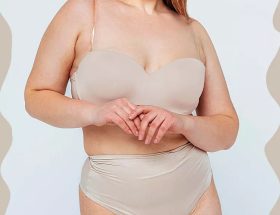Bentonite Clay for Skin: Benefits and How to Use
not only for pottery purposes, clay is one of those surprisingly multipurpose ingredients that actually offers a host of different benefits, skincare ones included. These days, you’re most likely to see it in purifying products geared toward oily and/or acne-prone skin, where it’s often paired with what we think of as its cousin: charcoal. But what exactly is that clay doing for your skin?
MEET THE EXPERT
Brooke Grant Jeffy, MD, is a board-certified dermatologist in Phoenix, AZ.
Fatima Fahs, MD, is a Michigan-based board-certified dermatologist and the creator of Dermy Doc Box.
Here, two board-certified dermatologists Brooke Grant Jeffy, and Fatima Fahs explain more about this ingredient’s clay-m to skincare fame. See what we did there?
What Is Bentonite Clay?
Well, for starters, it’s not just any old type of clay. “It’s mineral-rich and made of weathered volcanic ash,” says Jeffy. Fun fact: While the original source of bentonite clay was the Montmorillon region of France, where it’s been used on the skin for centuries, the term “bentonite” refers to the largest source of the clay today, Fort Benton, WY, she adds. (Field trip, anyone?) To the point, bentonite clay has a long and storied history. “It’s been used for centuries as a traditional medicine for detoxification, because it contains minerals such as calcium, magnesium, and iron,” says Fahs.
“It was typically ingested to absorb and purify the body of toxins, and it’s used in skincare for the same principles.”
Benefits of Bentonite Clay for Skin
It’s the detoxifying properties that really are bentonite clay’s calling card, but it can do more than just that.
Absorbs excess oil: The clay’s abilities to absorb excess oils make it ideal for those with acne-prone skin, says Jeffy.
Reduce the appearance of pores: The absorptive properties also means it has a temporary tightening effect on the skin and helps minimize the appearance of prominent pores, says Jeffy.
Has anti-inflammatory properties: Another boon for those battling breakouts, bentonite clay is naturally anti-inflammatory and can help calm inflammatory acne, explains Fahs. It’s also sometimes used to soothe dermatitis and even diaper rash, adds Jeffy.
May have some anti-aging effects: To be fair, this isn’t bentonite’s claim to fame. However, “the minerals found in this clay may help protect the skin from UV-induced free radical damage that contributes to an aged appearance,” says Jeffy. She also cites one study that found topical clay application to increase collagen production in rats; this may translate to some anti-aging effects in humans, she says.
Can mattify skin: If you’re looking to reduce oily skin (especially before putting on makeup) using a bentonite clay product is especially helpful. It absorbs oil and can give the skin a matte look.
Side Effects of Bentonite Clay
As far as side effects go, topical use of bentonite clay is much less likely to cause any safety issues than ingestion of the ingredient, says Jeffy. That being said, sensitivity or a reaction is always possible. Do a small patch test on your inner forearm before applying all over your face, and if irritation occurs, discontinue use. And, broadly speaking, bentonite clay is best reserved for those with oilier skin, as it can prove to be too drying for anyone who has a dryer complexion to begin with.
How to Use It
There are plenty of products that contain bentonite clay, given that it does play nicely with a wide array of different ingredients. You can also easily purchase straight-up bentonite clay powder and go the DIY route, though Fahs warns that it’s important to pay attention to what you’re buying. “There’s no FDA regulation on how this clay is sourced and what other contaminants it may contain, such as heavy metals or pesticides. This is why although there are many ways to purchase bentonite clay powder in bulk for very cheap, one should tread carefully,” she says. Do your research to find out where the clay is coming from, whether it’s been checked for purity, etc.

